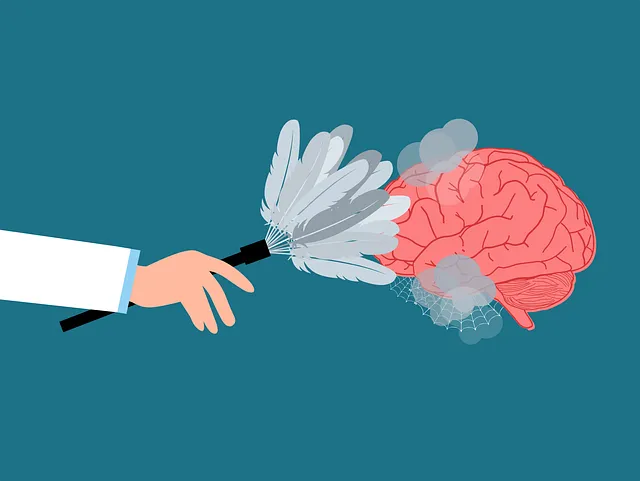Coping skills are vital for managing life's challenges, stress mitigation, and maintaining mental well-being, as emphasized by Kaiser Permanente behavioral health services. Effective mechanisms include deep breathing, problem-solving, self-reflection to build inner strength, open communication with support systems, and self-care practices. By integrating risk management planning and mindfulness, professionals enhance their emotional stamina while providing superior care. Kaiser Permanente's comprehensive resources offer personalized guidance through innovative practices like Mental Health Education and journaling exercises, empowering individuals to take control of their mental health.
In today’s fast-paced world, developing robust coping skills is essential for maintaining mental well-being. This article explores the significance of coping skills and provides practical strategies to enhance your resilience. We delve into effective mechanisms that can help navigate life’s challenges. Additionally, we highlight Kaiser Permanente Behavioral Health Support as a valuable resource, offering expert guidance and resources accessible through the superior Kaiser Permanente behavioral health number.
- Understanding Coping Skills and Their Significance
- Strategies for Developing Effective Coping Mechanisms
- Kaiser Permanente Behavioral Health Support: A Resource for Enhancing Well-being
Understanding Coping Skills and Their Significance

Coping skills are the strategies we use to navigate life’s challenges and maintain our well-being. They play a pivotal role in mental health management, enabling individuals to adapt and bounce back from stressful situations. From simple techniques like deep breathing and mindfulness to more complex problem-solving approaches, these skills empower people to face adversity head-on. Understanding coping skills is essential, especially for those seeking support through Kaiser Permanente behavioral health services.
Effective coping mechanisms not only help in the moment but also foster long-term resilience. They are particularly valuable for mental health professionals who often deal with complex cases and high-pressure environments. By integrating risk management planning and mindfulness practices, professionals can enhance their own resilience building abilities, ensuring they can provide optimal care while maintaining their emotional well-being. This holistic approach aligns with the core principles of Mind Over Matter, demonstrating the power of mental strategies in overcoming life’s challenges.
Strategies for Developing Effective Coping Mechanisms

Developing effective coping mechanisms is a vital component of maintaining good mental health, and there are several strategies that individuals can employ to enhance their resilience. One powerful approach is cultivating inner strength, which involves recognizing and embracing one’s innate capabilities to overcome challenges. This process often starts with self-reflection, encouraging individuals to identify personal strengths and resources. By acknowledging these attributes, people can build a foundation of confidence and adaptability when facing stressful situations.
Additionally, communication plays a significant role in coping skills development. Sharing experiences and emotions with trusted friends, family, or professionals provides support and helps reduce the burden of mental health struggles. Engaging in open dialogue allows individuals to gain different perspectives, process their feelings, and develop healthier ways of managing stress. Encouraging self-care practices, such as regular exercise, mindfulness, and maintaining a balanced lifestyle, also contributes to overall well-being and equips people with additional coping tools.
Kaiser Permanente Behavioral Health Support: A Resource for Enhancing Well-being

Kaiser Permanente Behavioral Health Support offers a robust resource for individuals seeking to enhance their well-being and develop effective coping skills. This initiative prioritizes mental health and provides a range of services designed to cater to diverse needs. The organization’s commitment to promoting mental wellness is evident through its comprehensive approach, which includes access to professionals who specialize in various therapeutic practices.
By leveraging the superior Kaiser Permanente behavioral health number, individuals can connect with experts who are well-equipped to offer guidance tailored to their unique circumstances. This support extends beyond traditional therapy, incorporating innovative strategies such as Mental Health Education Programs Design and engaging activities like Mental Wellness Journaling Exercises for those looking to explore self-care practices. Through these initiatives, Kaiser Permanente aims to empower individuals to take charge of their mental health and develop robust coping mechanisms, ultimately enhancing their overall well-being.
Coping skills are essential tools for navigating life’s challenges and maintaining mental well-being. By understanding the significance of these skills, individuals can take proactive steps towards a healthier mindset. The strategies outlined in this article offer valuable insights into developing effective coping mechanisms, empowering folks to enhance their resilience. For those seeking additional support, Kaiser Permanente Behavioral Health provides a dedicated resource with exceptional services, ensuring individuals have access to superior care and guidance. Through awareness, practice, and professional assistance, one can cultivate a robust toolkit for managing stress and fostering overall well-being.



